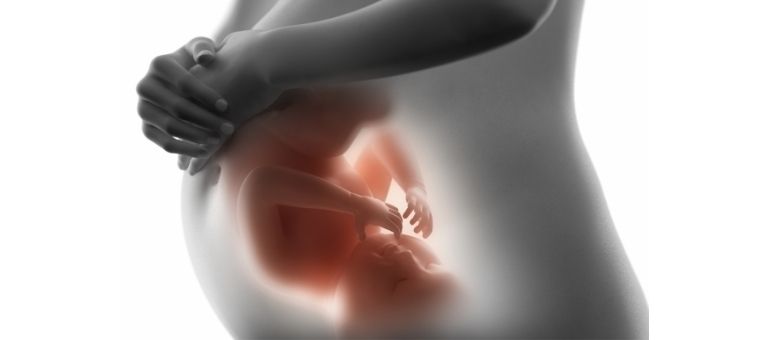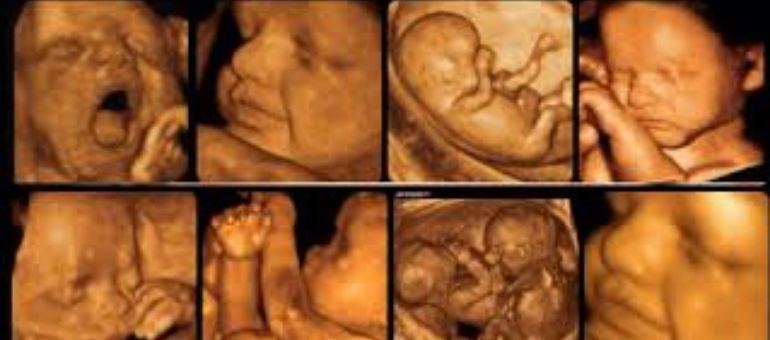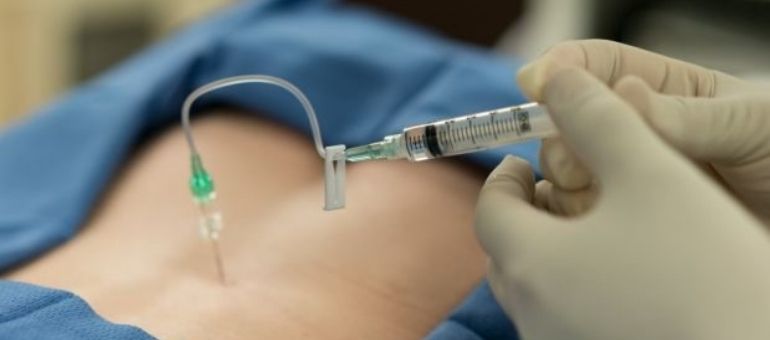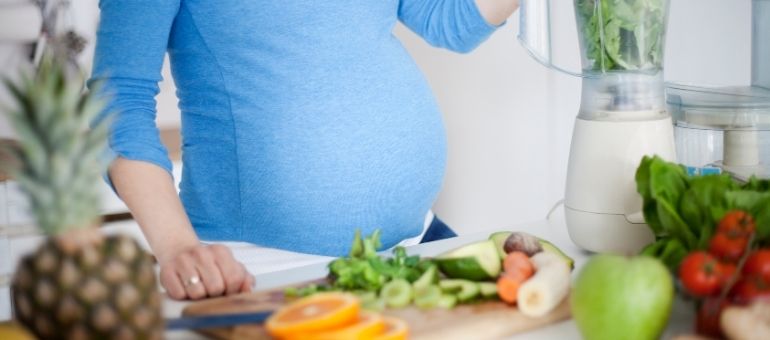Due to the baby’s needs during pregnancy, the amount of vitamins and minerals a mother must consume increases. Vitamins and minerals play an important role in carrying out body functions and in growth and development. During pregnancy, the amount of vitamins and minerals a mother must take increases. If these needs are not met sufficiently, the health of both the mother and the baby can be negatively affected.
SHOULD I TAKE VITAMIN AND MINERAL SUPPLEMENTS DURING PREGNANCY?
If you follow a healthy diet that includes vegetables, fruits, lean red meat, poultry and fish, fermented dairy products, legumes, and grains, you can get the vitamins and minerals you need naturally. However, deficiencies in folic acid, vitamin D, and iodine are common. In this case, the use of vitamin and mineral supplements is vitally important.
WHEN SHOULD I START TAKING VITAMIN AND MINERAL SUPPLEMENTS?
Ideally, for every woman planning a pregnancy, dietary changes and vitamin and mineral support should begin before conception to optimize the health of both the mother and the child. Nutritional evaluation and counseling should continue throughout pregnancy and breastfeeding.
FOLIC ACID
Folic acid is one of the B vitamins and helps prevent the risk of spina bifida (a condition where the baby’s spine and spinal cord do not develop properly in the womb, causing a gap in the spine). Taking folic acid supplements also reduces the risk of the baby developing heart disease and brain tumors after birth. The recommended daily dose is 400 micrograms (mcg). Ideally, you should start taking folic acid when you are planning to become pregnant and continue taking it until you reach the 13th week of pregnancy. A higher dose (5 mg daily) of folic acid may be recommended after consulting with your doctor if:
- You have had a previous pregnancy affected by spina bifida.
- You or your partner have spina bifida.
- You are taking certain medications for epilepsy.
- You have celiac disease or diabetes.
- Your body mass index is 30 or more (obesity).
- You have sickle cell anemia or thalassemia (hereditary blood disorders).
VITAMIN D
Vitamin D is an indispensable vitamin for everyone. A vitamin D deficiency can be seen in most people due to insufficient sunlight or low vitamin D reserves. During pregnancy, taking vitamin D supplements is essential for the mother’s holistic health and the healthy development, birth, and growth of the baby. With adequate vitamin D supplementation, the risk of rickets in infancy and childhood can be reduced. Due to the widespread vitamin D deficiency, the Ministry of Health recommends 1200 IU of vitamin D for every pregnant woman after the 12th week and also during breastfeeding.
IODINE
Iodine deficiency poses a potential risk for hypothyroidism in both the mother and the baby. The World Health Organization (WHO) recommends the use of iodized salt and an intake of 250 mcg of iodine for both pregnant and breastfeeding women. Iodized salt should be stored in a glass jar, away from direct sunlight.
CHOLINE
Choline is a type of B vitamin that is transferred from the mother to the fetus (the baby in the womb) at a high rate. Adequate choline intake is very important for the development of the central nervous system. It has a positive effect on cognitive function (intelligence and executive functions such as consciousness, memory, perception, and abstract thought) in babies. Eggs, meat, fish, dairy products, kidney beans, Brussels sprouts, broccoli, and spinach are all good sources of choline.
IRON
Iron is used by our body to produce a substance in red blood cells that carries oxygen to organs and tissues. During pregnancy, with the increased blood production to meet the oxygen needs of the fetus (the baby in the womb), the need for iron doubles. An iron deficiency can lead to anemia and, as a result, pregnancy loss, premature birth, postpartum bleeding, and developmental delays in the fetus. Severe iron deficiencies can also cause maternal death. The daily iron supplement requirement is 27mg. Lean red meat, poultry, fish, dry beans, and peas are all good sources of iron. Iron is absorbed better when consumed with foods rich in vitamin C, such as citrus fruits and tomatoes. It is particularly important not to consume dairy products like yogurt with meat. Dairy products reduce iron absorption.
CALCIUM
Calcium helps form the baby’s bones and teeth. All women, including pregnant women aged 19 and over, should get 1,000 mg of calcium per day. It is recommended that mothers get their calcium from food. Dairy products such as non-fat milk, kefir, cheese, and yogurt are good sources of calcium. If you have difficulty digesting dairy products, you can get calcium from broccoli and dark leafy greens.
OMEGA-3
Omega-3 fatty acids are a type of fat naturally found in many types of fish. They play a very important role in the baby’s brain development. To get the most benefit from omega-3 fatty acids, women should eat at least two servings of fish per week before conception, during pregnancy, and while breastfeeding. If pregnant women cannot consume fish, it is recommended to take an omega-3 fatty acid supplement in triglyceride form, with an EPA/DHA ratio of 3/2, and at least 200-300 mg.
VITAMIN K
Vitamin K is necessary for blood to clot properly. Newborn babies have low vitamin K levels, so they are at risk of bleeding. To prevent this, your baby will be given vitamin K after birth. You do not need to take vitamin K supplements during your pregnancy unless your baby is considered to be particularly at risk of bleeding.
VITAMIN A
An excess of Vitamin A can harm the development of the fetus’s nervous system. Therefore, supplements containing more than 700 micrograms of Vitamin A should be avoided during pregnancy. You should also avoid consuming foods that contain liver and liver products, which have high levels of Vitamin A.
VITAMIN E
With its antioxidant properties, Vitamin E is found in a variety of foods, including oils, meat, eggs, and leafy vegetables. Deficiency is rare due to the abundance of Vitamin E in the diet. However, Vitamin E deficiency can be seen in conditions such as cholestatic liver disease, pancreatic insufficiency, fat malabsorption diseases, and eating disorders. If you do not have a condition that causes Vitamin E deficiency, you do not need to take a Vitamin E supplement during your pregnancy.
B VITAMIN SUPPLEMENTS (EXCLUDING FOLIC ACID)
There are a total of 8 essential B vitamin types: vitamins B1, B2, B3, B5, B6, B7, B9, and B12. A deficiency can cause weakness, fatigue, memory loss, and anemia. Vitamin B12 deficiency is common during pregnancy because the need for vitamin B12 increases more than other B vitamins. A B12 deficiency is associated with both premature birth and low birth weight. Pyridoxine (vitamin B6), which is an important B vitamin, helps to reduce your symptoms of nausea and vomiting in the early stages of your pregnancy.
RECOMMENDED DIETARY ALLOWANCES (RDA) AND TOLERABLE UPPER LIMITS (UL) FOR PREGNANT AND BREASTFEEDING WOMEN
| RDA | UL | |
| For pregnant and breastfeeding women | For pregnant women | |
| Fat-soluble vitamins | ||
| Vitamin A | 770 mcg | 1300 mcg |
| Vitamin D | 600 IU (15 mcg) | 4000 IU (100 mcg) |
| Vitamin E | 15 mg | 1000 mg |
| Vitamin K | 90 mcg | – |
| Water-soluble vitamins | ||
| Vitamin C | 85 mg | 2000 mg |
| Thiamin (B1) | 1.4 mg | – |
| Riboflavin (B2) | 1.4 mg | – |
| Niacin (B3) | 18 mg | 35 mg |
| Vitamin B6 | 1.9 mg | 100 mg |
| Folic Acid | 600 mcg | 1000 mcg |
| Vitamin B12 | 2.6 mcg | – |
| Minerals | ||
| Calcium | 1000 mg | 2500 mg |
| Phosphorus | 700 mg | 4000 mg |
| Iron | 27 mg | 45 mg |
| Zinc | 11 mg | 40 mg |
| Iodine | 220 mcg | 1100 mcg |
| Selenium | 60 mcg | 400 mcg |






